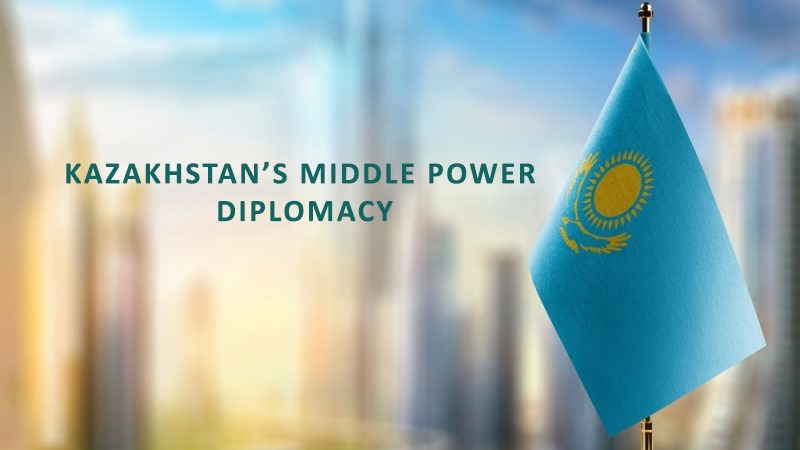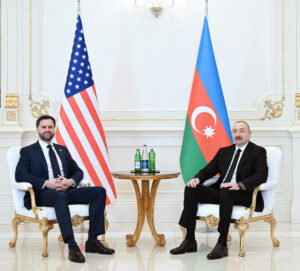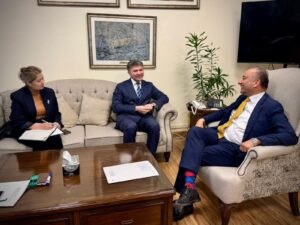Kazakhstan’s Middle Power Diplomacy

Kazakhstan has emerged as a key architect of middle power diplomacy. Historically situated at the crossroads of Asia and Europe, Kazakhstan has long served as a bridge between East and West, and more recently between the North and South as well. Today, under the visionary leadership of President Kassym-Jomart Tokayev, Kazakhstan is asserting itself on the world stage as a confident and capable middle power through multilateral diplomacy, balanced foreign policy, and a commitment to peace and cooperation. In the current era of intensifying great power competition and institutional uncertainty, middle powers like Kazakhstan play an increasingly vital role in stabilizing global order, encouraging dialogue, and offering alternative paths forward in conflict resolution and sustainable development.
At the heart of Kazakhstan’s diplomacy is its “multi-vector” foreign policy, a pragmatic approach that has enabled the country to build strong, balanced relations with major global actors such as China, Russia, the European Union, and the United States. This approach secures Kazakhstan’s sovereignty, reduces dependency on any single partner, and positions the country as a bridge between competing blocs.
President Kassym Tokayev’s leadership has reaffirmed this balanced policy, reinforcing Kazakhstan’s neutrality in geopolitical conflicts and enhancing its global partnerships. Whether it is trade with China, strategic cooperation with Russia, or investment flows from the European Union, Kazakhstan has embraced openness and engagement in multiple domains.
Kazakhstan as a Mediator
Kazakhstan’s credibility as a middle power is enhanced by its record as a neutral and trustworthy mediator in international disputes. It has hosted critical peace negotiations such as the Astana Process for Syria, which has played a crucial role in reducing hostilities and facilitating dialogue among key regional actors such as Russia, Turkey, Iran, and Syrian factions. More recently, Kazakhstan provided a platform for negotiations between Armenia and Azerbaijan, seeking to ease tensions over the long-standing Nagorno-Karabakh conflict. Such efforts reflect Kazakhstan’s growing role in conflict resolution and regional diplomacy. Kazakhstan is also a strong advocate for global nuclear disarmament and non-proliferation. Its voice is respected in international institutions, where it calls for dialogue over discord and sustainable peace & stability.
Kazakhstan’s growing international role is also evident in its active participation and leadership in multilateral organizations. The country chairs or participates prominently in the Shanghai Cooperation Organization (SCO), Organization of Turkic States (OTS), Conference on Interaction and Confidence-Building Measures in Asia (CICA), Islamic Organization for Food Security (IOFS), and International Fund for Saving the Aral Sea. Kazakhstan is not only contributing to regional development and stability but also reinforcing its image as a responsible stakeholder in global governance and development.
Astana International Forum (AIF)
The inaugural Astana International Forum (AIF), held in June 2024, highlighted Kazakhstan’s proactive role in convening the global community to address shared challenges. Bringing together over 4,000 participants from across the globe, the Forum addressed issues such as climate change, energy security, technological innovation, and peacebuilding. With the theme “Tackling
Challenges Through Dialogue Towards Cooperation, Development, and Progress,” the AIF embodied Kazakhstan’s belief in the power of inclusive dialogue to resolve global crises. The AIF served not only as a symbol of Kazakhstan’s commitment to multilateralism but also as a concrete mechanism for creating consensus around pressing global issues, from climate change and global health to regional security and economic cooperation.
Kazakhstan will continue to call for reforms to the United Nations Security Council, urging that middle powers must be given greater voice and representation, and believes that global peace and sustainable development can only be achieved through inclusive dialogue, where the concerns of smaller but responsible nations are taken seriously.
Economic Diplomacy and Connectivity
Kazakhstan’s geographic location makes it a natural transit hub, as
it lies at the heart of the Middle Corridor, formally known as the Trans-Caspian International Transport Route (TITR), which links China with Europe through Central Asia, the Caspian Sea, and the South Caucasus. This strategic corridor is part of both China’s Belt and Road Initiative and the EU’s Global Gateway, showcasing Kazakhstan’s unique ability to bridge East-West trade flows. In 2023, over 2.8 million tons of cargo were transported along the TITR, a nearly 90% increase from 2022. In the first nine months of 2024, this figure rose further to 3.4 million tons, with the year-end projection set at 4.2 million tons. Such numbers demonstrate the increasing importance of Kazakhstan in the global supply chain and its growing economic relevance beyond its immediate region.
A key element of Kazakhstan’s soft power is its dynamic and well-educated youth population. During the AIF and other major events, young Kazakhs were seen organizing, coordinating, and facilitating high-level proceedings with professionalism and dedication. The visible transformation of cities like Astana, with expanding infrastructure and opportunities for youth, reflects a future-oriented vision aimed at empowering the next generation. Youth represent the country’s potential to transition from a resource-dependent economy to a diversified, knowledge-based society.
From embracing neutrality and multilateralism to acting as a peacemaker and economic bridge, Kazakhstan has set an example for other middle powers. Its development strategy combines national interest with international responsibility, and it does so without succumbing to pressures from great power rivalries.
At a time when multilateralism is challenged by nationalism and when polarization threatens unity, countries like Kazakhstan offer hope and commitment to dialogue, cooperation, and mutual respect. Kazakhstan’s emergence as a middle power is not only a product of its strategic location or resources but also the result of consistent, calculated, and visionary statecraft. Through its balanced foreign policy, regional leadership, multilateral engagement, and peacemaking efforts, Kazakhstan has positioned itself as a respected global actor as well as capable of influencing international norms, bridging divides, and shaping the dialogue on critical global challenges. The Kazakh model illustrates how nations, regardless of size, can help build a more stable, interconnected, and peaceful future.


